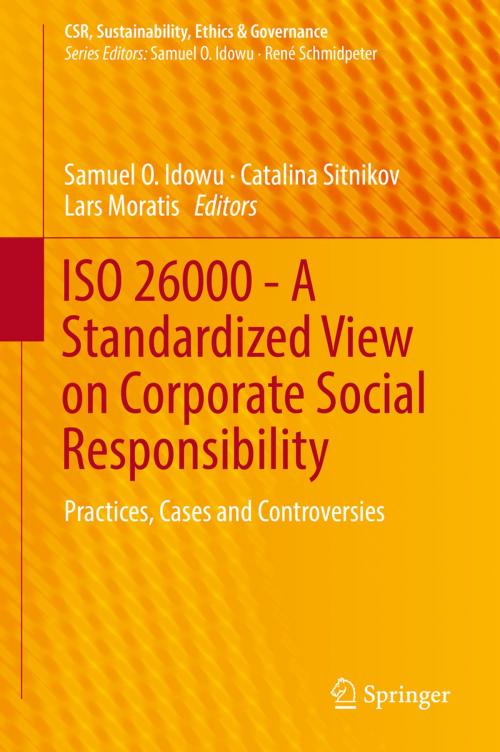ISO 26000 - A Standardized View on Corporate Social Responsibility
Practices, Cases and Controversies
Business & Finance, Business Reference, Business Ethics, Nonfiction, Science & Nature, Science, Biological Sciences, Environmental Science| Author: | ISBN: | 9783319926513 | |
| Publisher: | Springer International Publishing | Publication: | August 3, 2018 |
| Imprint: | Springer | Language: | English |
| Author: | |
| ISBN: | 9783319926513 |
| Publisher: | Springer International Publishing |
| Publication: | August 3, 2018 |
| Imprint: | Springer |
| Language: | English |
This book provides a comprehensive and detailed introduction to the ISO 26000 standard for social responsibility (SR) in businesses and corporations. In addition to discussing the standard’s focus on various stakeholders and seven core topics, the book underscores its key aspects and most debatable issues, with a focus on its connection to sustainable business practices. It presents numerous cases and practical examples of the ISO 26000’s implementation and discusses the outcomes and lessons learned, in terms of the extent to which organizations can envision practicing CSR in ways that fit their activities, stakeholders and environment.
Lately, the ISO 26000 has proved to offer an interesting and important approach to the standardization of (corporate) social responsibility. Approached and perceived as a voluntary standard that does not include any specific requirements, determining the best way to implement and work with it involved a considerable amount of experimentation. This book showcases the current state of application and discusses how different countries have developed their own specific versions of the standard, which organizations can use to certify their SR processes.
This book provides a comprehensive and detailed introduction to the ISO 26000 standard for social responsibility (SR) in businesses and corporations. In addition to discussing the standard’s focus on various stakeholders and seven core topics, the book underscores its key aspects and most debatable issues, with a focus on its connection to sustainable business practices. It presents numerous cases and practical examples of the ISO 26000’s implementation and discusses the outcomes and lessons learned, in terms of the extent to which organizations can envision practicing CSR in ways that fit their activities, stakeholders and environment.
Lately, the ISO 26000 has proved to offer an interesting and important approach to the standardization of (corporate) social responsibility. Approached and perceived as a voluntary standard that does not include any specific requirements, determining the best way to implement and work with it involved a considerable amount of experimentation. This book showcases the current state of application and discusses how different countries have developed their own specific versions of the standard, which organizations can use to certify their SR processes.















